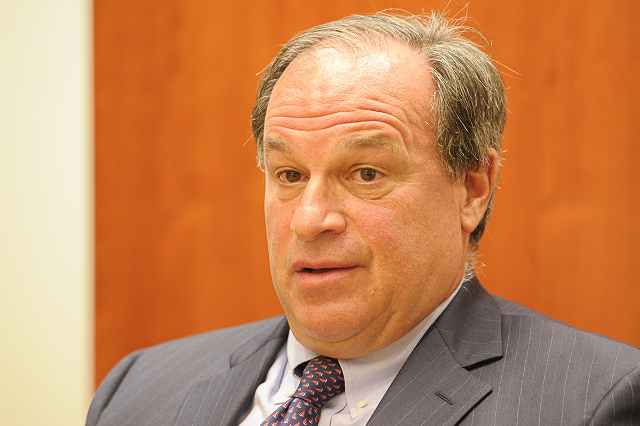Schwartz sticks with questionable regulations for ESAs

The ironies related to the Education Savings Account program continue to abound.
State Treasurer Dan Schwartz — whose office oversees the program that diverts the state share of school funding to accounts that parents can use for all manner of education programs — is set to adopt regulations that will govern the program.
Schwartz, of course, opposed a package of taxes that ultimately funded education in Nevada, but that’s another story.
Among his proposed regulations is the creation of “waivers” of the law’s requirement that ESA kids attend Nevada public schools for at least 100 consecutive days before availing themselves of the program. Under Schwartz’s proposed regulations, children of active-duty military families and those who aren’t yet required to attend public school (those aged 5 to 7 years old) could get ESAs.
And that regulation would be just fine, if only the Legislature had allowed for it.
Instead, you’ll search through the text of Senate Bill 302 (the law that established ESAs) in vain for any authority of the executive branch to waive any provision of the law.
That’s why the Legislative Counsel Bureau — the staff of lawyers who advises lawmakers — has opined that Schwartz’s regulations don’t comport with SB302. That’s consistent with a longtime principle of legislative construction which holds that if the Legislature wanted the law to say something, it would have written it thus.
Although several lawmakers and Gov. Brian Sandoval — who signed the bill into law — support Schwartz’s interpretation, it still comes down to this: They don’t like how the law reads, so they’re going to interpret it the way they want. Schwartz said in a statement: “I disagree with LCB on several points they have made.”
One of those points being, you can’t do what the law doesn’t allow, Mr. State Treasurer.
Now, you may think an exemption for military families and kids who are just entering school is reasonable. You might think there’s no good reason for the 100-day rule in the first place. (There was, by the way: It was imposed to keep the costs of the ESA program from skyrocketing.) You may, like Schwartz, buy into the argument that the 2009 adoption of the Interstate Compact on Educational Opportunity for Military Children by the Legislature allows the state to bend the rules. (It doesn’t; that compact says military students should be treated the same as everyone else, and the 100-day rule applies universally.)
Unfortunately, no matter how much we may dislike it, the black letters of SB302 don’t yield to the wishes of the treasurer, ESA parents, the governor or anyone else.
Perhaps we should ask Nevada’s attorney general, Adam Laxalt, a man so committed to the limitations on executive branch authority that he joined the state to a lawsuit against President Barack Obama, contending Obama lacked the authority to prioritize deportations of illegal immigrants to allow DREAMer kids and their parents to stay in the United States.
The argument that Obama — who is still deporting and turning away would-be illegal immigrants at the border in record numbers, by the way — has the authority to do what he’s doing is at least as strong as Schwartz’s defense of his proposed regulations. But to be consistent, it seems Laxalt would have to opine that the executive branch must confine itself to the law as written by the legislative branch.
In the meantime, good news! If the Legislature and the governor are so intent on scrubbing the 100-day rule, all they have to do is call a special session and amend that particular provision out. It’s certainly not as easy as ignoring it, but it has the virtue of being constitutional.
— Steve Sebelius is a Review-Journal political columnist and co-host of the show “PoliticsNOW,” airing at 5:30 p.m. Sundays on 8NewsNow. Follow him on Twitter (@SteveSebelius) or reach him at 702-387-5276 or SSebelius@reviewjournal.com.